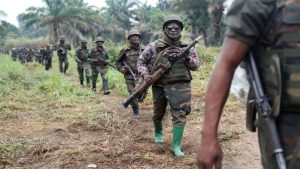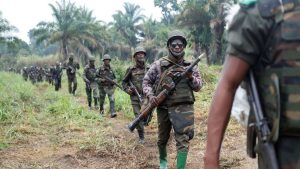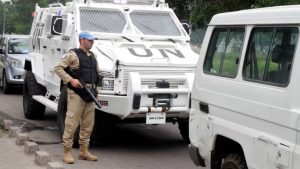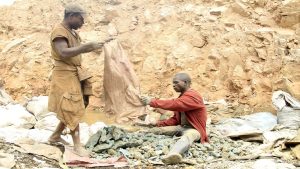Four new cases of the Ebola Virus Disease (EVD) have been confirmed in the Democratic Republic of the Congo (DRC) by government scientists there, prompting the UN health agency to scale up its response to an outbreak that was first suspected in December.
At least 17 people have died in an area in the northwestern region, says the Health Ministry said on Tuesday.
The new cases were identified in a remote area near the town of Bikoro, near the Congo River.
This is the ninth time Ebola has been recorded in the central African nation, whose eastern Ebola river gave the deadly virus its name when it was discovered there in the 1970s, and comes less than a year after its last outbreak which killed eight people.
Briefing reporters in New York, Stephane Dujarric, Spokesperson for the UN Secretary-General said the World Health Organization (WHO) is working closely with the government of DRC to rapidly scale up its operations and mobilize health partners.
“The outbreak declaration occurred after lab results confirmed two cases of Ebola. The World Health Organization is working closely with the Government of the DRC to rapidly scale up its operations and mobilize health partners using the model of a successful response to a similar outbreak in 2017,” he said.
Ebola is believed to be spread over long distances by bats, which can host the virus without dying, as it infects other animals it shares trees with such as monkeys. It often spreads to humans via infected bushmeat.
Before the outbreak was confirmed, local health officials reported 21 patients showing signs of hemorrhagic fever around the village of Ikoko Impenge, near the town of Bikoro.
“WHO plans to deploy epidemiologists, logisticians, clinicians, infection, prevention and control experts, communications experts and other vaccination support teams in the coming days. It released a million dollars from its Contingency Fund for Emergencies to cover its activities for the next three months with the goal of stopping the spread of Ebola to surrounding areas and countries,” added Dujarric.
After Congo’s last Ebola flare-up, authorities there approved the use of a new experimental vaccine but in the end did not deploy it owing to logistical challenges and the relatively minor nature of the outbreak.
The worst Ebola epidemic in history ended in West Africa just two years ago after killing more than 11 300 people and infected some 28 600 as it rolled through Guinea, Sierra Leone and Liberia.
Congo’s long experience of the disease and its vast, remote geography mean outbreaks are often localized and relatively easy to isolate and snuff out.
But Ikoko Impenge and Bikoro lie not far from the banks of the Congo River, an essential waterway for transport and commerce, downstream of which lie both Kinshasa and Brazzaville, capital of neighbouring Congo Republic.
Between them, the two cities have a population of more than 12 million.






